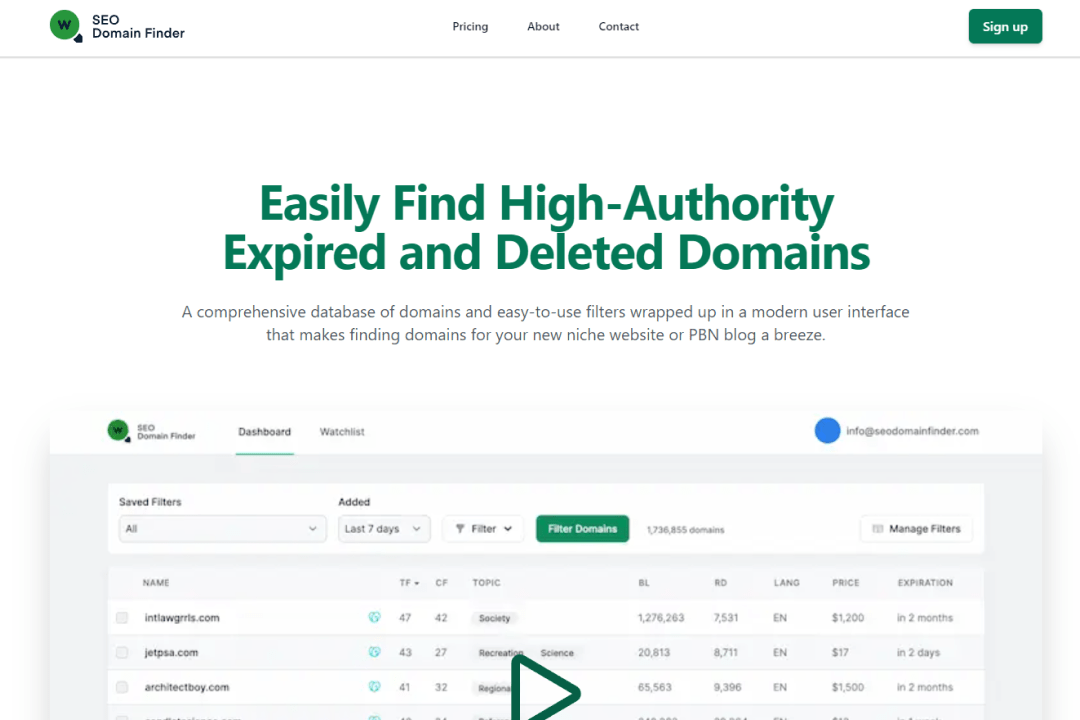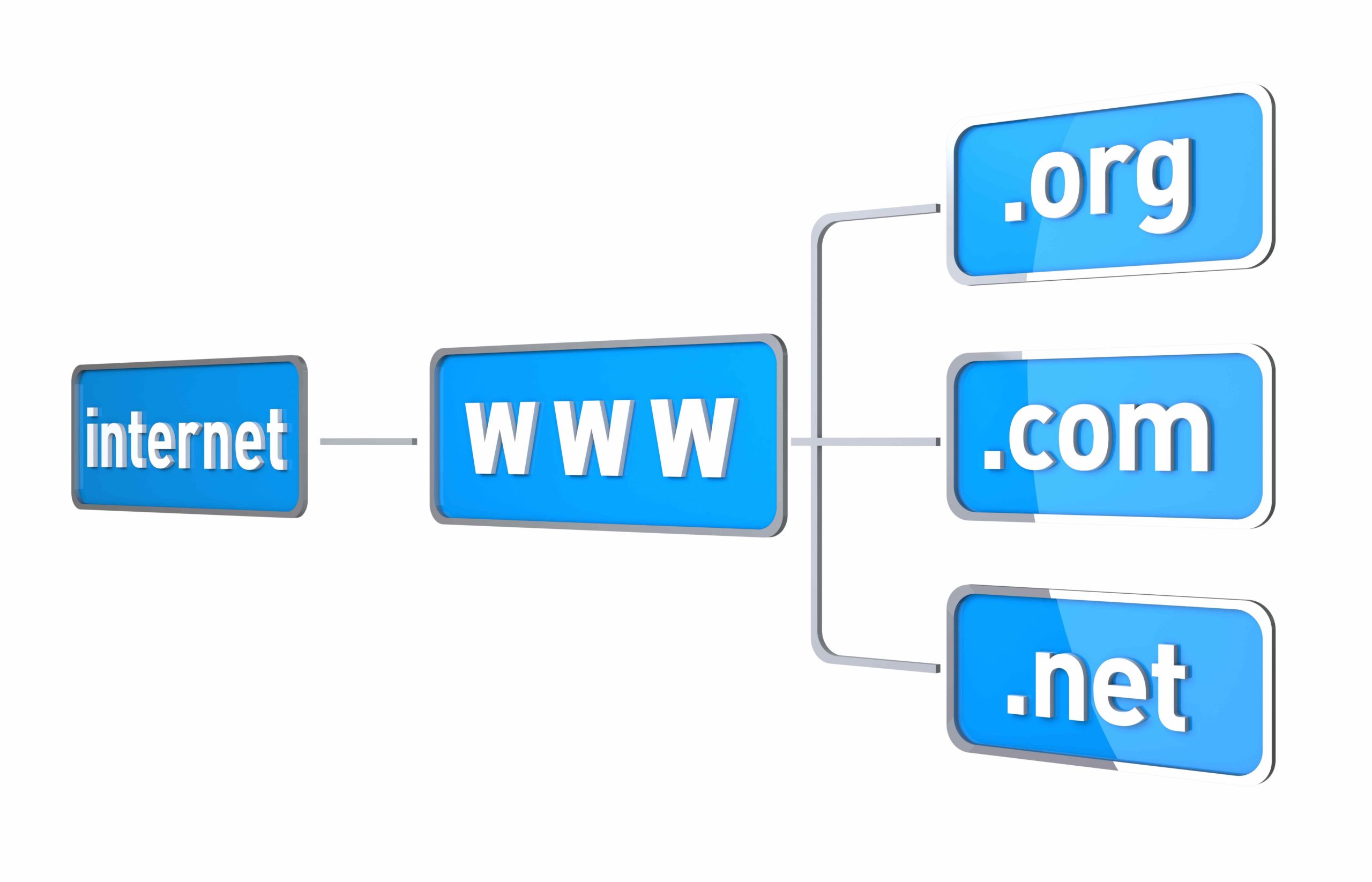
In search engine optimization (SEO), two terms often cause confusion: referring domains and backlinks. While they’re closely related, understanding the differences between them is crucial for anyone looking to boost their website’s ranking on search engines like Google.
In this article, we’ll explain what referring domains and backlinks are, why they matter, and how they impact your SEO strategy.
Key Takeaways
- The referring domain is a website that links to your site, while a backlink is a link from the referring domain to your website.
- While referring domains focus on the number of unique websites linking to you, backlinks encompass the total number of links, including multiple links from the same domain.
- Many links from the same domain have less power than if you have one link from different sites, and this shows that referring domains are more important than the number of backlinks.
- By focusing on acquiring high-quality backlinks from authoritative and relevant sources, you can enhance your site’s SEO performance and achieve better search engine rankings.
- Each new referring domain typically adds more SEO value than additional links from an existing domain.
What Is a Referring Domain?
A referring domain is any external website that links back to your website. These links are known as backlinks, and the websites providing these links are referred to as referring domains. (more about domain names you can learn in our article What is a Domain Name: Everything You Need to Know)
While backlinks and referring domains are related, they are distinct concepts. A single referring domain can have multiple backlinks pointing to your website.
Why are Referring Domains Important for SEO?
Referring domains are crucial for SEO (search engine optimization) because they significantly impact a website’s search engine rankings and organic traffic.
Here are the key reasons why referring domains are important for SEO:
- Authority and Trust: Referring domains act as endorsements from other websites, signaling to search engines that your site is authoritative and trustworthy. High-quality referring domains, especially from authoritative and relevant websites, enhance your site’s credibility in the eyes of search engines like Google.
- Diverse Link Profile: A diverse range of referring domains indicates to search engines that your site is valued across various sources. This diversity is more beneficial than having many backlinks from a single domain, as it suggests a more natural and genuine link profile.
- Improved Rankings and Traffic: Websites with a higher number of unique, high-quality referring domains tend to rank better in search engine results pages (SERPs). This is because search engines view these links as votes of confidence, which can result in increased organic traffic.
- Exposure and Brand Visibility: Having multiple referring domains can increase your site’s exposure and brand visibility, reaching a broader audience. This can lead to more potential customers and engagement with your content. We have a great article about brand marketing – you should check it out.
- Quality Over Quantity: The quality of referring domains is more important than the sheer number of backlinks. Links from spammy or low-quality domains can harm your SEO efforts, while links from reputable sites can boost your rankings.
What Is a Backlink?
A backlink is a link from another website (referring domain) to your website. Having backlinks from different referring domains can help strengthen your online presence.
You should keep in mind that not all links are equal.
It’s important to realize the difference between good and bad backlinks. The last can harm your credibility and should be disavowed.
Google now focuses on the quality of your links, not just the quantity, due to past abuses in the link-building process.
To learn more about different types of backlinks, read our article: https://quirk.biz/different-types-of-backlinks/
Why are Backlinks Important for SEO?
Backlinks are crucial for SEO because they significantly influence search engine rankings and enhance a website’s authority and visibility.
Here are the main reasons why backlinks are important for SEO:
- Ranking Signals: Backlinks are one of the primary factors that search engines use to rank pages. They serve as endorsements of your content’s quality and relevance, helping search engines determine which pages should rank higher for specific queries.
- Domain and Page Authority: The number and quality of backlinks contribute to a site’s domain authority and individual page authority. Higher authority can lead to better visibility and ranking potential for all pages on the site.
- Anchor Text: The text used in the hyperlink (anchor text) can provide context to search engines about the content of the linked page. Relevant and keyword-rich anchor text can improve the page’s relevance for specific search terms.
- Link Diversity: While referring domains focus on the number of unique websites linking to you, backlinks encompass the total number of links, including multiple links from the same domain. A diverse backlink profile, with links from various types of content and sources, can enhance SEO.
- Natural Link Building: Earning backlinks naturally, through high-quality content that others want to reference, aligns with search engine guidelines and can lead to sustained SEO benefits. This natural link-building approach is more sustainable and less risky than manipulative tactics.
- Competitive Advantage: Analyzing competitors’ backlinks can provide insights into their SEO strategies and help identify opportunities for your own link-building efforts, potentially giving you a competitive edge.
Difference Between Referring Domains and Backlinks
The main difference Between Referring Domains and Backlinks lies in quantity. Many links from the same domain have less power than if you have one link from different sites. This shows that referring domains are more important than the number of backlinks.
Let’s delve deeper into the differences between referring domains and backlinks and their respective roles in SEO:
Source Diversity:
- Backlinks: You might have hundreds or thousands of backlinks, but if they all come from a few domains, it doesn’t provide as much SEO value. This is because search engines value diversity. Multiple backlinks from the same domain can appear spammy or indicate a lack of credibility spread.
- Referring Domains: A higher number of referring domains indicates that your website is recognized and trusted by a wide range of websites. This diversity is a strong indicator to search engines that your content is widely regarded as authoritative.
Authority and Trust:
- Backlinks: Not all backlinks are created equal. A backlink from a high-authority site (e.g., a government website or a leading news outlet) carries far more weight than several backlinks from low-authority sites. The quality of backlinks is more critical than the sheer number.
- Referring Domains: Referring domains are particularly valuable when they come from authoritative sources. A few referring domains from highly reputable sites can be more beneficial than many from lesser-known sources.
SEO Impact:
- Backlinks: A site with a large number of backlinks may seem impressive, but if those links are concentrated on a few domains, the SEO benefit is limited. The quality and distribution of backlinks across various referring domains determine the SEO impact.
- Referring Domains: A diverse range of referring domains signals to search engines that your site is trusted by different sources. This is often a more reliable indicator of your site’s authority and relevance, leading to better rankings.
Link Building Strategy:
- Backlinks: While it’s important to accumulate backlinks, the focus should be on gaining links from high-quality, relevant websites rather than just increasing the quantity.
- Referring Domains: When planning a link-building strategy, aim to acquire links from a variety of reputable domains. This can be achieved through guest posting, content marketing, outreach, and earning natural links through valuable content.
Quality Assessment
- Backlinks: Quality is often assessed based on factors like anchor text, surrounding content, and placement within the linking page.
- Referring Domains: Quality is typically evaluated based on the domain’s overall authority, relevance to your niche, and trustworthiness.
| Criteria | Backlinks | Referring Domains |
|---|---|---|
| Definition | Individual hyperlinks pointing to your site from other web pages | Unique domains that provide one or more backlinks to your site |
| Quantity | Can be numerous; multiple backlinks can come from the same domain | Represents the number of distinct websites linking to your site |
| Quality Impact | Quality of each backlink is crucial; high-quality backlinks from authoritative sites are more valuable | The authority and relevance of the referring domain significantly impact SEO value |
| Diversity | A large number of backlinks from the same domain may be less beneficial | A higher number of referring domains indicates broader recognition and trustworthiness |
| SEO Impact | Influences rankings; the effect depends on the source and relevance of the backlinks | More significant impact on SEO when links come from a diverse set of authoritative domains |
| Authority Signaling | Signals authority, especially when backlinks come from high-authority sites | Strongly signals site authority and relevance across the web when from multiple domains |
| Link Juice Distribution | Each backlink can pass varying amounts of link juice depending on its source | Link juice is distributed across the number of unique referring domains, enhancing overall domain authority |
| Spam Risk | A high number of backlinks from few domains may appear manipulative or spammy | A diverse range of referring domains reduces the risk of being flagged for spammy link-building practices |
| Link Building Strategy Focus | Focus on acquiring high-quality backlinks, preferably from diverse sources | Prioritize acquiring backlinks from new and varied domains to maximize SEO benefits |
| Tracking and Analysis | Requires monitoring the quantity and quality of individual links | Important to track the number and quality of unique referring domains, as they indicate broader recognition |
| Value Over Time | Backlink value can fluctuate based on changes in the linking site’s authority | A stable and growing number of referring domains generally indicates long-term SEO health |
How to Check Your Backlinks and Referring Domains
You can use different tools to check the backlinks and referring domains to your website: Google Search Console, Ahrefs, Majestic, SEMRush, and others.
We usually work with Ahrefs.
To check the number of backlinks and referring domains for a website, log in to your Ahrefs account, go to ‘Site Explorer,’ and enter the website’s URL. Then, you can select ‘Backlinks’ or ‘Referring Domains’ from the menu to view the links and domains associated with the website.
How to Get More Referring Domains
Diverse referring domains are crucial for Google rankings, so focus on acquiring high-quality ones.
Here are some methods to boost your efforts:
- Create Quality Content: High-quality, valuable content is more likely to attract links from other websites. This includes publishing case studies, long-form articles, infographics, and original research.
- Guest Blogging: Write articles for other reputable websites in your niche. This not only helps in gaining backlinks but also exposes your content to a broader audience.
- Competitor Analysis: Use tools like Ahrefs to analyze your competitors’ backlink profiles. Identify high-quality referring domains linking to them and reach out to these sites with your content.
- Use Free Resources: Offer free resources such as templates, graphics, or tools that others in your industry will find useful and may link to.
- Broken Link Building: Identify broken links on other websites and offer your content as a replacement. This can be an effective way to gain new referring domains.
- Engage in Outreach: Directly reach out to websites that might find your content valuable. This can include using the skyscraper technique, where you create superior content and ask sites linking to similar content to link to yours instead.
- Leverage Social Media and PR: Promote your content across social media platforms and engage in digital PR to increase visibility and attract more referring domains.
- Use Tools and Services: Use SEO tools like Google Search Console, Ahrefs, or LinkMiner to track your current referring domains and identify new opportunities
- Buy links – To buy backlinks means to pay another website to link back to your site. You should keep in mind that link-buying practices carry inherent risks, and it is crucial to stay updated with search engine guidelines to avoid potential penalties. I recommend our article How to Buy Backlinks: Tips From SEO Experts.
Conclusion
Understanding the difference between referring domains and backlinks is essential for effective SEO.
Having more referring domains is beneficial, and there are strategies you can use to get them.
Whether you’re a beginner or a pro, understanding the importance of each and how they relate to SEO will help you create more effective strategies.











































































































